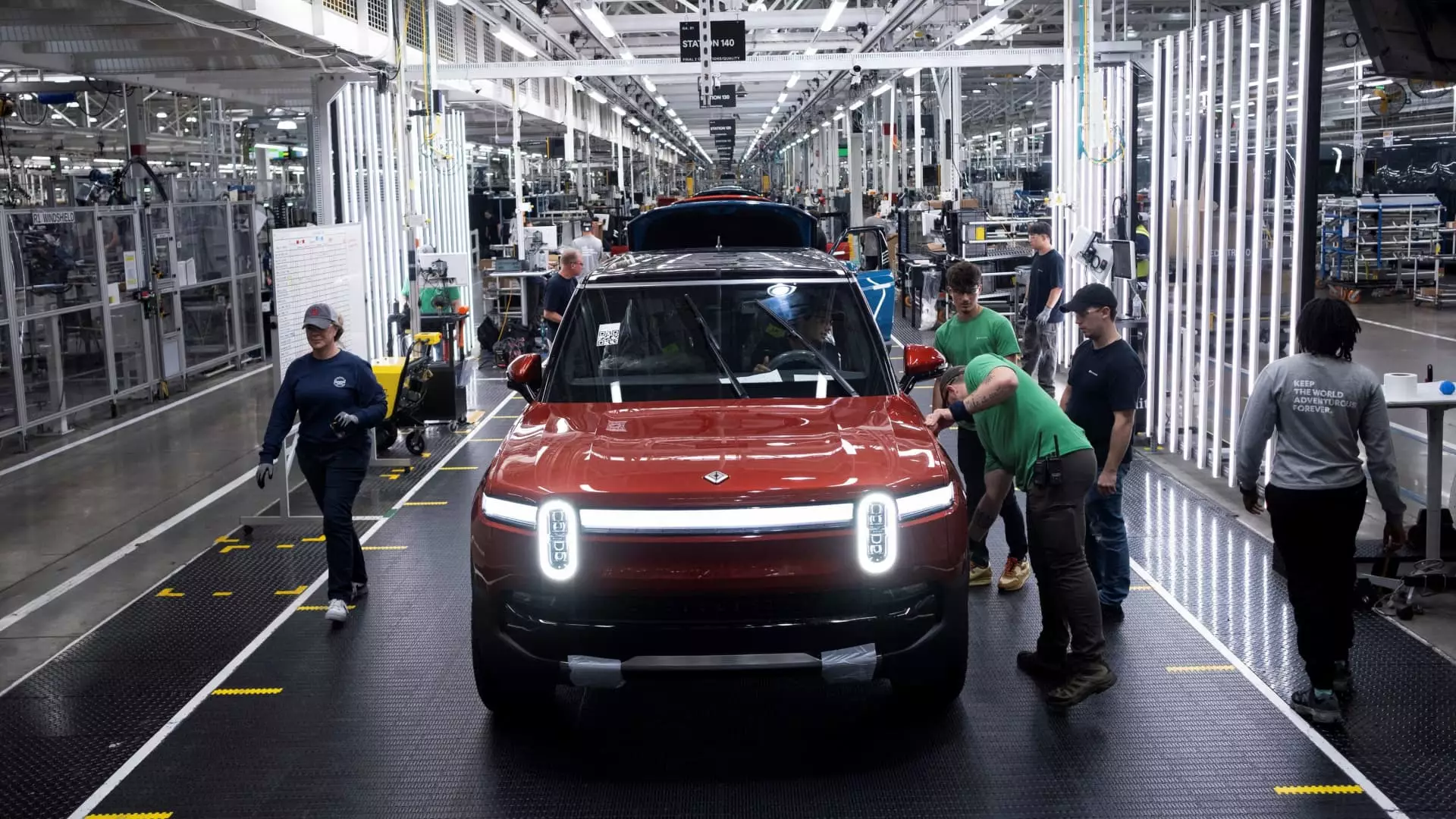Rivian Automotive, a promising player in the electric vehicle (EV) sector, is grappling with notable production challenges that have triggered a decline in its stock price. Recently, shares of the company fell approximately 4% during early trading, a response to the lower-than-expected vehicle deliveries for the third quarter and a significant downward revision of its production forecast for 2024. With total production numbers cut sharply from an anticipated 57,000 units to a revised estimate of 47,000 to 49,000 units, Rivian’s operational troubles have raised questions about its future viability in a fiercely competitive EV market.
At the heart of Rivian’s production downturn is a shortage of a critical component utilized in its R1 vehicle line and commercial vans. This disruption is linked to the company’s in-house motors, as explained by a spokesperson who refrained from divulging specific details about the affected components. The ramifications of this shortage began emerging in Q3 and have intensified in recent weeks. The company acknowledged this challenge publicly, highlighting the convoluted realities of navigating a multi-tiered supply chain that can be fraught with difficulties.
RJ Scaringe, Rivian’s CEO, highlighted these supply challenges during a Morgan Stanley investor conference, underscoring the company’s struggle with multiple suppliers. He characterized the situation as a “painful” reminder of the vulnerabilities faced by manufacturers who rely on an intricate network of component suppliers. Such comments underline the increasingly complex and fragile nature of global supply chains, especially for new tech-driven industries like electric vehicles.
The company has maintained its annual delivery outlook, projecting low single-digit growth relative to its 2023 figures, with expectations to deliver between 50,500 and 52,000 vehicles. However, analysts had projected quarterly deliveries to be around 13,000 units, and Rivian managed to produce only 13,157 vehicles during the third quarter while delivering 10,018. Although the production figures demonstrate a degree of resilience, falling short of expectations has further eroded investor confidence.
The decline in Rivian’s stock illustrates broader trends in the electric vehicle market. Year to date, shares of Rivian have plummeted over 50%, largely attributed to slower-than-anticipated demand for EVs coupled with the company’s substantial cash burn. The competitive landscape is only expected to intensify, with established automakers and new entrants increasingly drawing attention to the growing EV demand.
As Rivian navigates these challenges, the forthcoming quarters will be crucial for assessing its ability to stabilize production and regain investor confidence. The company stands at a critical juncture, where effective management of supply chain constraints and strategic innovation will determine its trajectory in the electric vehicle industry. Stakeholders will be watching closely, as Rivian’s next steps will be pivotal in deciding whether it can sustain its ambitions or falter under operational pressures. The road ahead appears complex, yet defining for Rivian’s future in an ever-evolving market landscape.

